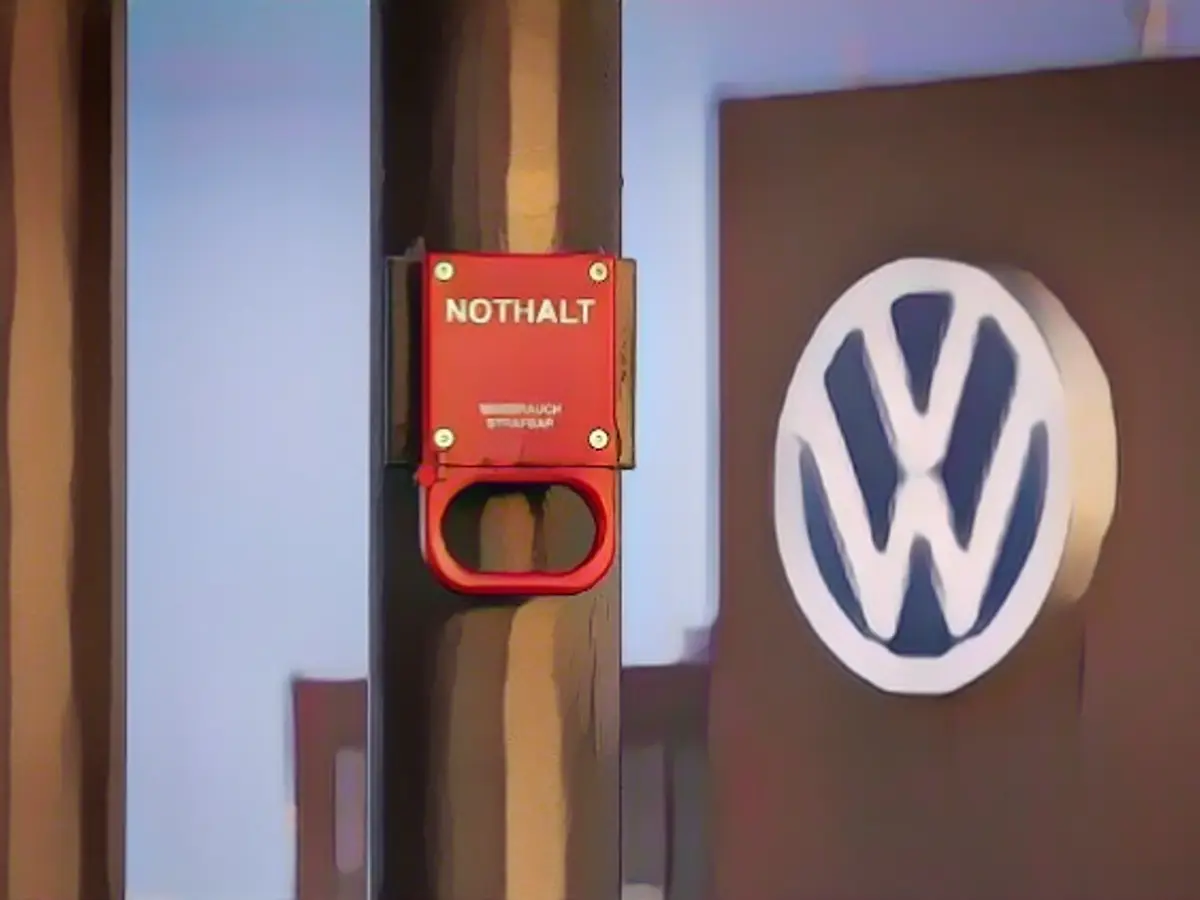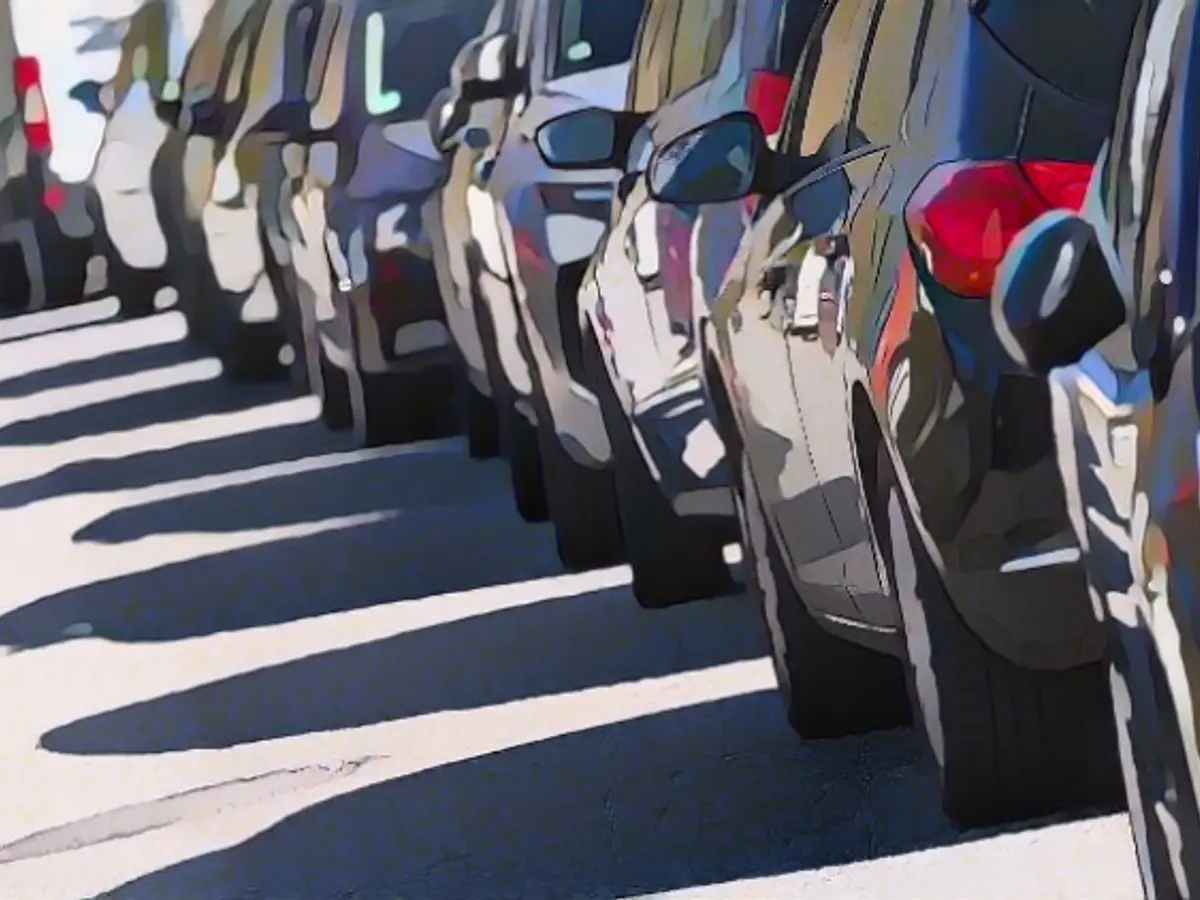The looming job cuts in the German automotive industry, with Volkswagen and Continental leading the charge, signal a shift towards electromobility that will impact tens of thousands of jobs.
Volkswagen is aiming to cut administrative costs by a fifth, resulting in 4,000 to 6,000 job cuts, primarily through partial retirement. Similarly, Continental plans to cut thousands of jobs globally in its automotive division, with a focus on reducing administrative costs. According to industry experts, such cuts are not isolated incidents - electrification is driving the need for significant changes across the automotive sector.
Recent predictions suggest that around 160,000 jobs in the German car industry could be at risk. This daunting figure is driven by the fact that electric vehicles require fewer components and less labor compared to traditional combustion engine vehicles.
Competition from abroad is another significant factor. As the global shift towards electromobility gathers momentum, German manufacturers are being pushed to save and innovate. Taking cues from Tesla and Chinese manufacturers, they're looking for ways to reduce costs and improve their value proposition.
However, it's not all doom and gloom. According to expert analysis, German car manufacturers can still become competitive again - if they invest in battery cell technology, software, and digital capabilities, and maintain their premium standards in the world of electromobility.
The German industry is also advocating for government support, including subsidies and the expansion of charging infrastructure. Extended leasing schemes, income-based purchase bonuses, and clear rules governing access to chargers are some of the measures being considered.
But it's not just about cutting costs. Innovation plays a crucial role as well. Companies are investing heavily in next-generation technologies like solid-state batteries, hydrogen fuel cells, and advanced battery recycling. Vertical integration and greater automation are also being explored to manage costs effectively and improve recycling rates.
In the face of this "Herculean challenge," German car manufacturers will have to adapt, innovate, and shift their strategies. The survival of the industry hinges on their ability to navigate these changes and embrace the future of electromobility.
Sources: - -
Enrichment Data: The German automotive industry is facing significant challenges as it transitions to electromobility, and this transition is expected to lead to job losses. Here are the key points regarding job losses and survival strategies:
Expected Job Losses
- Total Job Losses: According to the German Association of the Automotive Industry (VDA), the industry's transformation towards electromobility could cost a total of around 190,000 jobs by 2035[1].
- Increasing Job Losses: Factors such as the location conditions and overall economic situation could lead to an increase in job losses significantly[1].
Survival Strategies
- Increased Electric Car Sales: To boost electric car sales, the industry needs to significantly increase the number of new battery-electric vehicle (BEV) registrations. This would require an increase of 75% in BEV sales compared to the previous year, which is around 666,000 units[1].
- Charging Infrastructure Expansion: The industry emphasizes the need for a rapid expansion of charging infrastructure to support the growth of electric vehicles. This includes clear, transparent, and valid rules governing access to chargers and billing[2].
- Government Support: The industry is calling for more government support, including public subsidies to support the industry. This includes income-based purchase bonuses, leasing schemes, and the extension of charging infrastructure[4].
- Technological Innovation: Companies are investing heavily in research and development for next-generation technologies, including solid-state batteries, hydrogen fuel cells, and advanced battery recycling[3].
- Vertical Integration: Companies like BASF and PowerCo are advocating for vertical integration to manage costs effectively. This includes controlling the offtake of lithium and other critical minerals to ensure a stable supply chain[3].
- Automation and Efficiency: Greater automation is seen as a key strategy to increase recycling rates and improve safety levels in battery recycling processes[3].





